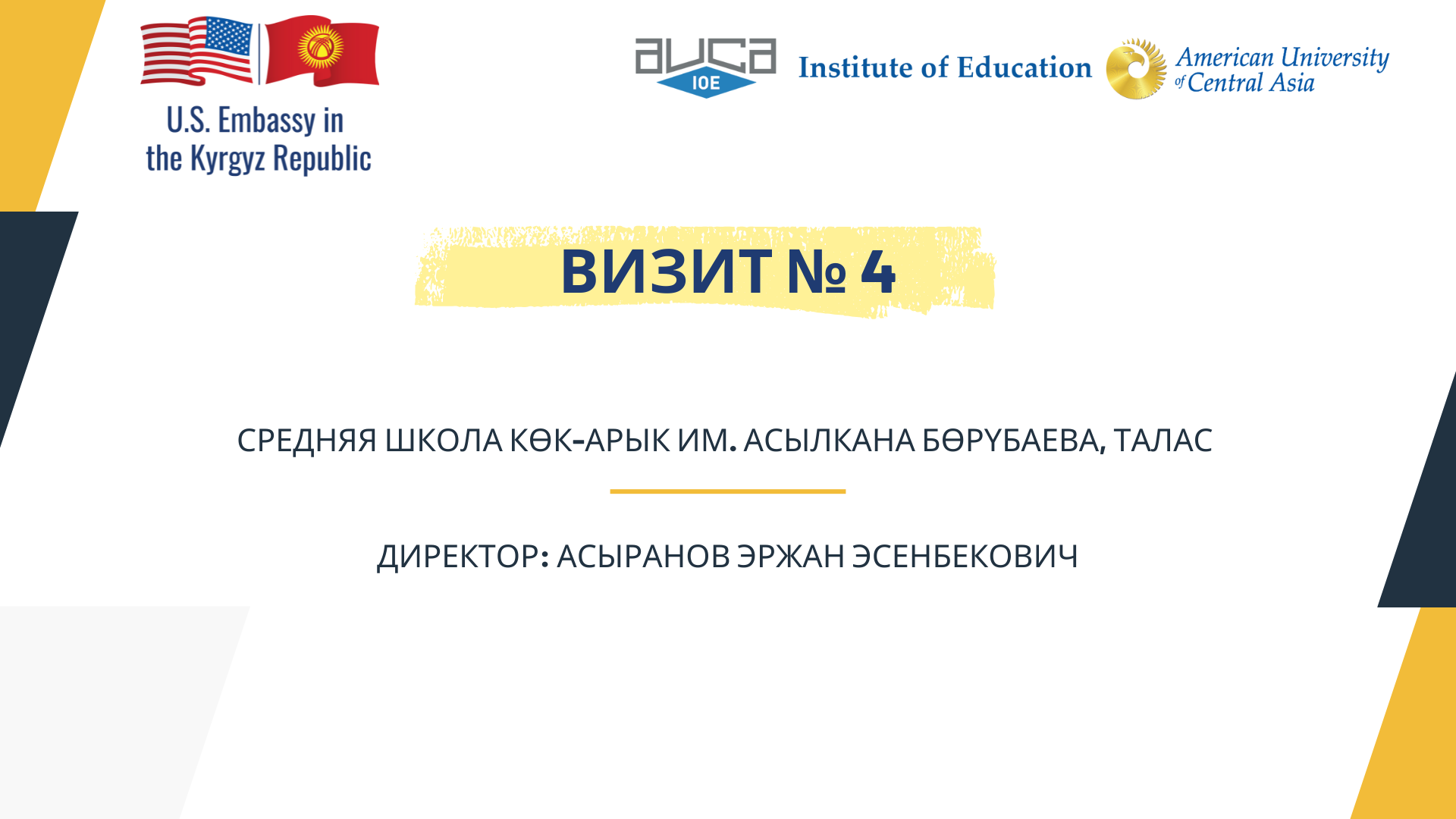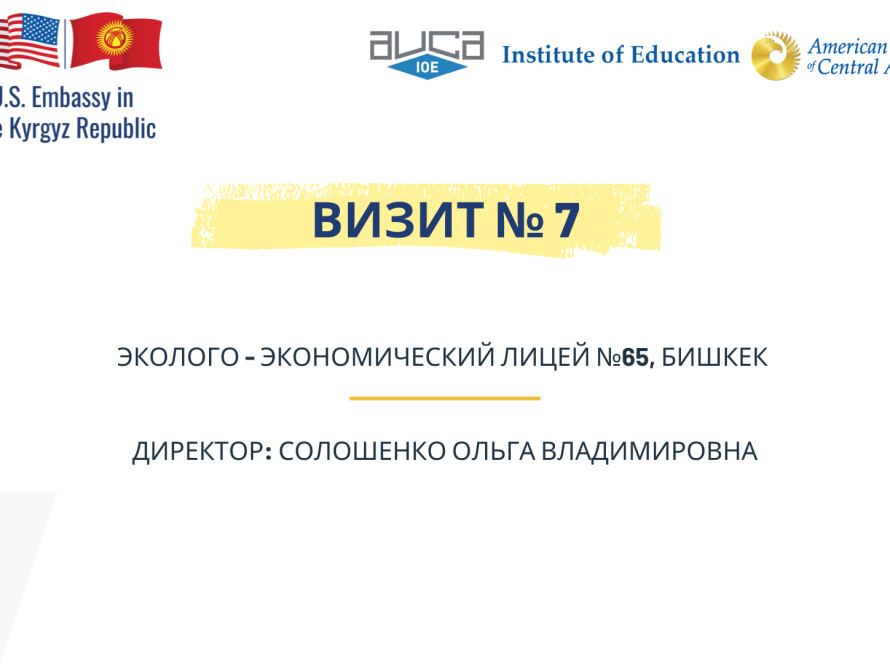Post-Visit Report: Insights from School Visits – Leadership in Action at Kök-Aryk School
Introduction
On February 13, 2025, the FORUM 2.0 project hosted its fourth reciprocal school visit at Kok-Aryk Secondary School named after Asylkan Borubaev, Talas region. Led by the school’s director, Mr. Erzhan Asyranov, the visit brought together a team of two visiting directors, the FORUM project manager, and twelve additional public school directors from the Nookat and Osh regions. Also in attendance were representatives from the Talas District Education Department and the local Mayor’s Office, reflecting strong local stakeholder interest in peer learning and leadership development.
Visit Overview
The program began with a welcome meeting and an introductory video about the host school, followed by a guided school tour. Participants had the opportunity to observe classrooms, review instructional materials, and engage with teachers and students. The group then gathered for a facilitated discussion centered around video presentations prepared by the visiting directors. These videos explored leadership challenges and showcased innovative approaches from their respective schools.
Discussion Highlights and Best Practices
Several themes emerged during the visit as particularly noteworthy and widely applicable:
Community Engagement and Ownership: The host school serves as a cultural and educational hub for the community. Visitors highlighted the school’s strong partnerships with parents, local businesses, and alumni. Notably, alumni contribute resources for school improvement and student support.
Leadership Identity and School Culture: Director Asyranov was recognized by participants as a “visionary and pragmatic leader.” His visible presence, collaborative style, and trust-based relationship with staff have shaped a distinctive school culture rooted in pride, professionalism, and continuous improvement.
Resource Mobilization: The school’s successful strategies for attracting sponsorship—both financial and in-kind—were cited as exemplary. One unique practice includes using proceeds from a school-run orchard to support enrichment activities and infrastructure upgrades.
Inclusive and Needs-Based Education: Participants appreciated the school’s attention to learners with different needs. Dedicated support staff and adaptive teaching strategies were evident, as was the school’s investment in extracurricular and elective courses to serve a broad student population.
Team Building and Distributed Leadership: The school benefits from a cohesive teaching staff, many of whom are local to the village. The clear delineation of administrative responsibilities and strong intra-school communication were seen as enabling conditions for innovation and stability.
Reflections from Participants
Directors described the visit as “deeply motivating,” “practical,” and “transformative.” Several remarked that it provided answers to leadership challenges they had long grappled with. One visiting director noted:
“This was not a performance for guests—it was a transparent, honest, and inspiring look at leadership grounded in community and integrity.”
The experience helped participants reflect not only on best practices but also on areas for growth in their own schools. Many stated that they returned home with specific ideas for strengthening their leadership teams, expanding student voice initiatives, and improving collaboration with local stakeholders.
Conclusion
The visit to Kok-Aryk School was more than a peer exchange—it served as a live case study in adaptive, values-driven leadership. It demonstrated the power of strong school-community relationships and inspired a renewed commitment among visiting directors to lead with vision and openness. FORUM 2.0 continues to demonstrate how reciprocal learning, grounded in authentic practice, can transform school leadership across Kyrgyzstan.



